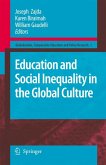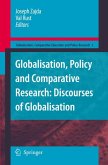The chapters critically analyze the dominant discourses about decentralization and comparative education and examine the current resurgence of neo-liberal ideological models in education, both newly constructed and re-invented. To ensure as broad a perspective on the issues as possible, the authors employ a raft of diverse paradigms in comparative education research, ranging from critical theory to globalization.
This in-depth exploration of globalization, ideology and democracy in education examines both the reasons for and outcomes of education reforms, decentralization, policy change and transformation. In doing so, it seeks to provide a more informed critique on Western-driven models of accountability, quality and school effectiveness. It is the eighth in the 12-volume book series Globalization, Comparative Education and Policy Research, which presents scholarly research on major discourses in comparative education research with reference to decentralization and school-based management. The series provides an accessible, practical yet scholarly source of information about international issues in the field of globalization and comparative education.
Dieser Download kann aus rechtlichen Gründen nur mit Rechnungsadresse in A, B, BG, CY, CZ, D, DK, EW, E, FIN, F, GR, HR, H, IRL, I, LT, L, LR, M, NL, PL, P, R, S, SLO, SK ausgeliefert werden.
Hinweis: Dieser Artikel kann nur an eine deutsche Lieferadresse ausgeliefert werden.









